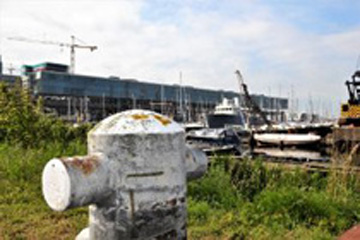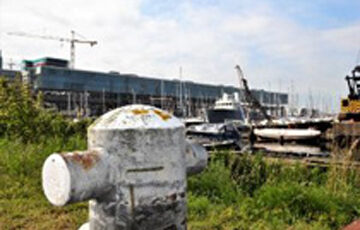
The horse industry is full of disputes. Whether it be between owners, trainers, and other parties involved, these issues can cause major setbacks for all sides. As an equine lawyer in the Netherlands with years of experience in this field, I’ve seen many different types of conflicts that arise within the horse world—from contractual disagreements to injury claims. In this article, I will discuss some common disputes in the horse industry in the Netherlands, as well as provide advice on how to navigate them successfully.
Disputes over ownership in the Netherlands are some of the most widespread issues encountered by those who work with horses. Ownership may not always be clear-cut; cases have been known where multiple people claim rights to a single animal. It’s important to remember that contracts or documents proving ownership should exist before any transfer is completed. Without proper documentation, there’s no guarantee that either party will receive what they expect from the transaction.
Another common dispute involves injuries caused by one party to another while working with horses. These cases can become quite complicated due to varying state and federal laws surrounding liability related to animals. Depending upon the circumstances and severity of the incident, legal action may need to be taken against someone deemed responsible for causing harm or damage.
No matter which type of conflict arises in the horse industry, it’s important that all parties take steps necessary to protect their interests and ensure fair treatment throughout proceedings. With careful consideration given to each situation at hand, disputes can be resolved efficiently without sacrificing anyone’s rights unnecessarily.
Definition
The horse industry is no stranger to disputes. They often arise from a lack of clarity or understanding between parties involved in the horse business. To get a better handle on the situation, it’s important to first define what kind of conflicts we are dealing with here. In essence, there are two types: contractual and tortious disputes.
Contractual disputes occur when one party does not fulfill their part of a contract – such as failing to pay for services rendered or an animal purchased. These kinds of disagreements can typically be solved through negotiation or mediation before they reach the court system.
Tortious disputes involve situations where one party has been wronged and suffered some type of harm due to negligence, carelessness, or intent by another person or entity. This could include injuries caused by improper handling at shows or competitions, property damage resulting from poor maintenance practices, etc. Depending on the circumstances, these cases may require legal intervention to resolve them properly.
It goes without saying that resolving any issues amicably should always be the goal; however, sometimes taking matters into your own hands isn’t feasible and outside counsel must be sought out instead. With this in mind, let’s move forward to discuss the different types of disputes found within the horse industry.
Types Of horse Disputes in Holland
The horse disputes in Holland that can arise in the horse industry are diverse and complex. As an equine lawyer in the Netherlands, I must be aware of all potential sources of contention so as to provide my clients with the best advice possible.
Below is a list of some of the more common types of disputes between parties connected to horses:
- Disputes among owners concerning control over the animal or its sale/purchase price;
- Conflicts involving horse trainers, barn owners, or riders regarding negligence or payment for services rendered;
- Legal disagreements in the Netherlands between breeders and buyers relating to pedigree misrepresentations.
It is essential for both sides of any dispute to understand their rights and responsibilities when entering into such agreements. Failure to do so may result in significant financial losses which can have lasting impacts on the lives of those involved. For this reason, I strongly advise seeking the counsel of an experienced equine attorney before taking any action related to a contentious situation within the horse industry.
My expertise extends beyond providing legal guidance—I also strive to educate my clients about breeder rights and responsibilities so they can make informed decisions when faced with these challenging matters.
Breeder Rights And Responsibilities in the Netherlands
The horse breeding industry is a billion-dollar business. As such, breeders must be aware of their rights and responsibilities when it comes to producing foals for sale or trade.
First and foremost, all equine breeders should adhere to any laws governing animal husbandry within the state they reside in. Failure to follow these regulations can result in fines or even jail time depending on severity of infraction. Additionally, breeders must also observe any contractual obligations made between themselves and buyers prior to sale of a horse or foal. This includes providing accurate information about bloodlines as well as ensuring that animals are free from disease before being sold – both of which are legally binding agreements under most circumstances. Furthermore, if an animal is found to have inherited disorders or genetic defects after purchase then the breeder may be held liable for any resulting damages incurred by the buyer due to said issues.
Lastly, anyone involved in equine breeding should always practice proper safety protocols while working around their animals; this includes wearing protective gear such as helmets and boots when handling horses and using appropriate equipment like halters and bridles during transport. By following these guidelines not only will you help ensure your own wellbeing but also that of your livestock’s too! Thus transitioning into the next section: Racing Regulations…
Racing Regulations in the Netherlands
The horse racing industry is subject to a variety of regulations. These rules are put in place to ensure fair competition, protect the horses’ health and safety, and maintain integrity throughout the sport. It is important for all participants—owners, trainers, jockeys and stewards—to be aware of these regulations and abide by them.
One such regulation that must be followed is regarding eligibility of competing horses. Horses must meet certain criteria in order to race at a particular track or level of competition. This includes age requirements, physical examinations, medical records, proof of pedigree registration and more. Failure to comply can result in severe consequences, including fines and disqualification from the race or even suspension from future races.
In addition to eligibility standards, there are also restrictions on medication usage before or during a race as well as measures taken against abuse or negligence towards the animal. If any of these stipulations are breached then it could lead to equine law litigation and arbitration in the Netherlands between parties involved in the dispute over violations of legal guidelines set forth by governing bodies within the sport.
Given this overview of racing regulations, it is clear why proper understanding and adherence to these laws is essential for all those engaging professionally with equine athletics. Moving forward we will take a look at some common ownership issues related to the horse racing industry.
Ownership Issues under Dutch law
Having discussed the legal requirements and regulations governing horse racing, we now turn to issues concerning ownership of horses. These disputes under Dutch law often involve a variety of players who have an interest in the animal: owners, trainers, riders, grooms and other caretakers, veterinary services providers and insurance companies.
The primary source for resolving such disputes is Dutch law that govern domestic animals. Generally speaking, these laws recognize a valid purchase or lease agreement as creating property rights in a particular animal. In some cases, courts may also consider evidence outside of written agreements if it can be shown that one party had reasonable expectations about controlling this asset. It is important to note that even if there are no formal contracts between parties involved in an ownership dispute, they may still have obligations based on their behavior towards each other and the horse itself.
In many situations involving an ownership disagreement, it will be beneficial to all parties involved to attempt mediation before resorting to costly litigation. Mediation processes provide an opportunity for everyone to come together, discuss their respective interests honestly and openly so that a resolution can be reached without further escalating the conflict. A successful outcome could result in greater understanding between the participants while avoiding costly litigation fees associated with lengthy court proceedings in the Netherlands. As we shall see in our next section on mediation processes, they offer both cost savings and potential benefits beyond simply settling ownership disputes alone.
Mediation Processes in the Netherlands
When it comes to resolving disputes in the horse industry, mediation can be a powerful tool for finding a peaceful solution. Dispute resolution through mediation usually involves an impartial third party who listens to both sides of the story before offering a suggestion on how to move forward. This process helps ensure that all parties involved are heard and considered while avoiding costly legal fees associated with court proceedings.
To illustrate just how effective mediation can be, consider this example: A stallion owner had recently been accused of training his horses in an unethical manner by several other owners in their area. After hearing out both sides of the argument, the mediator was able to suggest changes to the stallion owner’s practices which ensured they were still successful yet more humanely conducted. Both parties agreed with the mediator’s suggestions and thus successfully avoided any further conflict or litigation.
Below is a list summarizing some key points about using mediation as way to resolve equine-related disputes:
- It allows for an unbiased assessment of the situation from an outside source.
- Through compromise and negotiation, mutual understanding between disputing parties can be achieved without resorting to court proceedings.
- Mediation tends to cost less than taking your dispute directly into court.
Mediation processes offer many advantages over traditional litigation when dealing with conflicts within the horse industry; however, sometimes these methods do not provide a satisfactory outcome or may even prove too difficult if one side refuses to cooperate with negotiations. In such cases, taking matters into court may be necessary in order to reach a proper resolution.
Resolving Conflicts In a Dutch Court
When disputes arise in the horse industry, it is important to consider legal options. In some cases, a court of law may be the best option for resolving conflicts. To do so, plaintiffs must understand the laws and regulations governing horses and contracts related to their ownership or care. An equine lawyer in the Netherlands can help guide parties through this process and ensure that all applicable statutes are followed.
In addition, an experienced litigation attorney in the Netherlands will know how to present evidence in court effectively. This includes providing testimony from experts who have valuable knowledge about the situation at hand as well as compiling detailed records such as veterinary reports, bills of sale, signed agreements, photographs and other relevant documents. Furthermore, they should be familiar with the rules of civil procedure when filing suit against another party.
The outcome of these proceedings varies depending on many factors; therefore consulting a qualified professional is essential before taking any action. By understanding your rights and engaging in thorough preparation you can increase your chances of achieving an equitable resolution without litigation if that is possible in your case.
Having considered the potential risks associated with settling matters in court, let’s now look at strategies for avoiding conflicts altogether.
Strategies For Avoiding Conflicts
Recent studies show that an estimated 12% of all horse-related disputes involve stallions, mares and foals. This statistic serves to highlight the potential for conflict in the equine industry. To mitigate this risk, there are several strategies that can be employed:
- Implement clear contracts outlining the rights and responsibilities of both parties involved in any transaction related to horses.
- Take proactive steps to ensure that a horse’s medical history is accurate and readily available before entering into any agreements or purchases with respect to such animal.
- Maintain good records including veterinary documents and other paperwork pertaining to ownership/registration certificates.
- Utilize mediation as much as possible when conflicts arise – it has been shown to be one of the most successful methods for resolving issues without resorting to litigation.
- Vet check prospective horses carefully prior to purchase – ask questions about breeding, age, training history, etc., so you know exactly what you’re getting into from the start.
As an equine lawyer I have seen first hand how these strategies can help avoid costly disputes down the line. Taking preventive measures not only ensures smooth transactions but also helps maintain positive relationships between buyers and sellers within this unique industry. With proper planning ahead of time insurance considerations become less complicated – another important factor to consider when engaging in any activity involving a horse.
Insurance Considerations in Holland
Having discussed the various strategies to avoid conflicts, it is now important to understand how insurance plays a role in disputes within the horse industry. Insurance can be used as an added layer of protection for both parties involved if there are issues that arise during any contract or transaction. It is critical that all parties involved have sufficient coverage and appropriate limits so liabilities do not become unmanageable.
When purchasing an equine-related policy, it is essential to make sure all clauses are understood before signing a contract. Many policies provide general liability coverage which may include personal injury, property damage, medical payments and legal defense costs associated with certain incidents. Other types of coverage that one should consider includes mortality, loss of use, theft/fire and other livestock related losses.
It is also important to review the exclusions listed on each policy in order to fully understand what will not be covered under such agreement. Issues commonly excluded from most polices are weather-related events, pre-existing conditions, animal cruelty or abuse and intentional acts by either party; this list must always be read carefully prior to executing any type of equine-related insurance policy. Having adequate understanding of these terms will help protect against potential financial loss due to a dispute between two parties in the horse industry.
Insurance considerations play a pivotal role in managing risk when engaging in transactions involving horses; however their impact extends further than just individuals and has implications on the horse industry as a whole.
Impact On Horse Industry As A Whole
The disputes in the horse industry have a ripple effect that reaches far beyond those involved in the dispute. The entire equine community is impacted. Not only do these conflicts cause stress and anguish, but also hurt businesses, impede progress and cost time and money to resolve.
From breeders and owners to trainers, show organizers and even spectators, when disputes arise they can cast a long shadow over the whole horse industry. Horse shows may be cancelled or postponed while settlements are negotiated. Trainers may lose clients because of legal action taken against them and their reputation could suffer irreparable damage. Owners may find themselves stuck with horses they cannot sell or unable to get medical care for their animals due to lack of funds caused by litigation expenses.
As an equine lawyer who has seen how divisive such cases can be, I understand first-hand how paramount it is for all parties to come together quickly in order to minimize disruption within the broader horse community. Allowing tensions to fester often leads to protracted negotiations which drain resources from everyone involved – especially those not directly connected with the actual case at hand. It’s my hope that we all take steps towards resolving issues in a timely manner so as not to further upset our shared passion for this majestic species.
Frequently Asked Questions
What Are The Financial Implications Of Becoming Involved In The Horse Industry?
Becoming involved in the horse industry can involve significant financial implications, and it’s important to understand these before making any decisions. As an equine lawyer, I advise clients on the potential risks of engaging in the industry so they are able to make informed choices.
When considering entering into this sector, individuals should be aware of the costs associated with purchasing horses, such as boarding fees or veterinary bills. Additionally, there may be additional expenses related to training and selling horses that must also be taken into account. Furthermore, legal advice from a knowledgeable attorney is essential when negotiating contracts for sales or leases; failure to do so could result in costly disputes down the line.
Ultimately, deciding whether to become involved in the horse industry requires careful consideration and close attention to all aspects of the decision-making process. It’s crucial to research thoroughly and obtain sound legal counsel prior to taking action. This will help ensure you’re protected financially and reduce your chance of encountering expensive issues later on.
How Can I Find A Reputable Horse Breeder in the Netherlands?
When looking for a reputable horse breeder, it is important to do your research. A good place to start is by talking to people who are familiar with the industry and getting their advice on potential breeders. Additionally, you should look for any reviews or ratings about specific breeders that can give you an idea of what other people have experienced when dealing with them. Here are some tips to help you find a reliable horse breeder:
- Research online: Take advantage of online resources such as websites, forums and social media networks dedicated to horses, which will provide valuable information on various breeders in your area.
- Ask around: Talk to experienced equine professionals such as veterinarians, trainers or farriers who may be able to recommend certain breeders in your area.
- Visit farms: Schedule visits at different horse farms so you can get a better sense of the environment and decide if the farm is up to your standards.
Once these steps have been taken, pay attention to how the breeder communicates with you during the process; this could tell you a lot about their professionalism and dedication towards providing quality care for horses. Furthermore, ask questions regarding the health records of their horses and make sure that all paperwork is kept up-to-date and accurate before making any decisions. Taking time upfront researching prospective breeders can save much heartache down the line and serve as an invaluable investment into your future success within the horse industry.
Are There Any Tax Implications Associated With Owning A Horse in Holland?
Owning a horse is an exciting and rewarding endeavor, but it does come with certain legal implications. Tax laws vary from jurisdiction to jurisdiction, so it’s important that potential owners do their research before investing in a horse of their own. As an equine lawyer, I’m often asked about the tax implications associated with owning a horse.
For starters, some states require property taxes on horses and land used for breeding or boarding purposes. Depending on where you live, this may be paid annually or semi-annually. Additionally, if you hire someone to care for your horses, whether they are employed full time or as independent contractors, then you’ll need to pay payroll taxes too. It’s also worth noting that any income received through sales of horses or related activities like riding lessons will likely be subject to both state and federal taxation.
It’s essential to consider how these taxes will affect your budget when deciding whether owning a horse is right for you. Doing due diligence when researching your local tax requirements can prevent costly surprises down the line. In addition to staying informed about current regulations regarding ownership costs such as feed and veterinary care, taking the time to understand applicable tax codes can help ensure financial security while enjoying all that comes with being a responsible horse owner.
Are There Any Established Standards Of Care For Horses In The Dutch industry?
Owning a horse comes with many responsibilities, including the standard of care for the animal. Established standards of care are essential to ensure equine welfare and protect horse owners from legal disputes in the industry. In this article, I will provide an overview of these standards as they relate to horses within the context of the horse industry.
First, it is important to note that there are laws and regulations governing how horses should be treated. Additionally, organizations can set and enforce higher standards through their own codes of conduct.
Here’s a quick breakdown:
- Laws are applicable nationwide and cover issues such as adequate veterinary care, housing conditions, transport safety, and other aspects related to proper care.
- Dutch laws may differ from other countries but usually focus on specific topics like abuse or neglect cases involving animals owned by individuals or businesses operating in that particular area.
The importance of adhering to established standards cannot be overstated; failure to do so could result in lawsuits from disgruntled clients or government agencies seeking financial reparations due to animal cruelty or mistreatment allegations against horse owners/operators who failed to meet those same obligations outlined above. As an experienced equine lawyer specializing in dispute resolution between parties involved with owning and managing horses within this field, I highly recommend consulting with relevant experts before entering any agreement pertaining to horse ownership or management activities – especially if one lacks thorough understanding regarding accepted protocols associated with said activity beforehand!
What Are The Legal Requirements For Owning A Horse in the Netherlands?
Owning a horse is a serious responsibility that requires legal knowledge. It is important for potential horse owners to understand that owning a horse comes with certain liabilities as well as rights. In order to protect both themselves and their animals, they should research local legislation and consult an experienced equine lawyer if necessary. For example, some states may require livestock identification tags or vaccinations for disease prevention while others might mandate annual veterinary examinations or farm inspections. Additionally, it is essential for all horse owners to ensure that their fences comply with local ordinances and that proper nutrition, housing, exercise, and health care are provided for their animals.
As part of responsible horse ownership, understanding liability issues is also critical. Depending on the state where one resides, this could include having adequate insurance coverage in case of injury to humans or other animals caused by one’s own horses or even holding harmless agreements between property owners in cases of trespassers being injured due to negligence on either side. Ultimately it is imperative for those considering purchasing a horse to familiarize themselves with these requirements before making any commitments.
In short, owning a horse can be incredibly rewarding experience; however, it is important for prospective buyers to know what legal obligations they will need meet prior to doing so in order to ensure the safety and wellbeing of everyone involved.
Dutch litigation lawyer for horse disputes
As a Dutch litigation and equine lawyer in the Netherlands, I have seen my fair share of disputes in the horse industry. From financial issues to legal requirements, there are many factors to consider before becoming involved with horses.
One interesting statistic I would like to emphasize is that throughout the U.S., it’s estimated that over 4 million people own horses and ponies. This figure highlights just how popular this hobby has become; however, with popularity comes responsibility – owners must understand their obligations when caring for a horse or pony.
It’s important to research your potential breeder carefully and look into any associated tax implications prior to purchase. Additionally, having a clear understanding of what constitutes ‘acceptable standards of care’ will help ensure both animal and owner safety while minimizing the risk of dispute within the industry. At all times, bear in mind that you are legally responsible for your horse’s well-being once ownership is transferred.
In conclusion, if you ever find yourself embroiled in a dispute involving equine law in the Netherlands, seek professional advice from an experienced equine lawyer in the Netherlands who can explain your rights and responsibilities under law as well as advise on any other related matters such as insurance coverage or liability waivers.






